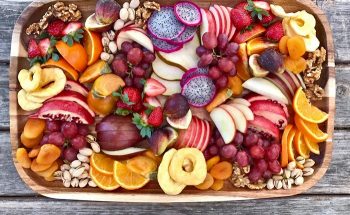Recently, there has been a rise in Irritable Bowel Syndrome (IBS) cases, or what is known as colon problems. The reason for IBS is still unknown and can happen suddenly.
Common symptoms include flatulence, abdominal gases, constipation and diarrhea at the same time. And these symptoms can worsen with stress.
Abdominal cramps are really so painful and this problem should be solved immediately because it disrupts daily activities.
For all IBS sufferers, diet modification will surely help to reduce those symptoms a lot. But you need to be aware of the foods in your diet which may be causing you extra discomfort.
A note to remember.
The symptoms are very personal and unique to the individual, and one symptom can affect one person, and not the other one.
Poor eating habits such as skipping meals, low fibre and water intake, excessive fatty food intake, sensitivity to milk and other dairy products, and excessive caffeine need to be modified as a first step to relieve symptoms in IBS.
Here are some of the nutrition modifications you have to make:
The most common dietary treatment is to switch to a high fibre diet, especially for those who suffer from constipation. However, some patients may not benefit from an increase in dietary fibre which may worsen the symptoms. That is why the increase in fibre should be gradual, involving a variety of fibre content and an adequate water intake of at least 1.5 litres per day.
IBS symptoms tend to increase after large meals, particularly if the meal is high in fat, or if the meal is eaten quickly. That’s why you should split your meal into 5 small and healthy ones. Also, avoid eating quickly and try to relax after a meal.
As I mentioned before, flatulence is a major symptom of IBS. Some food items should be excluded completely from the diet, then reintroduced once the problem is solved. These food items include broccoli, cauliflower, cabbage, green pepper, capsicum, beans, fowl, hummus, bulgur, lentil or couscous. Carbonated soft drinks should also be excluded from your diet.
Some individuals with IBS may eliminate any source of lactose from their diets, due to lactose intolerance. Lactose is found mainly in dairy products such as milk and ice creams. You should note that these foods give us important nutrients, and reduced consumption can affect calcium intakes, so why not taking a daily calcium supplement in that case!?
Some people can feel extremely bloated with strong stomach pains right after eating onions or garlic. If this is the case, these two items should be excluded as well.
My personal advice:
- Keep a food, fluid and symptoms diary that will help you in observing how food in your diet and other factors such as stress affect your body.
- Start with the basics of three low-fat, high fibre meals with two to three light snacks per day. Drink two litres of water daily and limit the intake of soft drinks and caffeine. Eat slowly and make meal times as relaxing as possible.
- Once symptoms have settled, reintroduce the foods excluded but gradually.
- Consider consulting a dietitian for personalized advice regarding your diet and any modifications.
If you don’t mind me asking, can you please tell me what is the best way to detoxify my body is? – Suha Taha
Hello,
Well, first you need to cut out caffeine found in coffee, teas, soft drinks and chocolate as well as sugar as well as all fried food and salty foods from your diet.
Instead, you should eat clean food like lean fish and seafood; whole grains and legumes like quinoa, beans, grilled veggies and boiled potatoes; and fruits especially kiwi, pineapples, melons, berries and
For sauces, lemon, mustard, and olive oil are ok. And lastly, drink a lot of water to clean your colon and which aids in digestion. Have a nice day.
To subscribe to my diet programs, don’t forget to log in to: www.eatlikemira.com.

